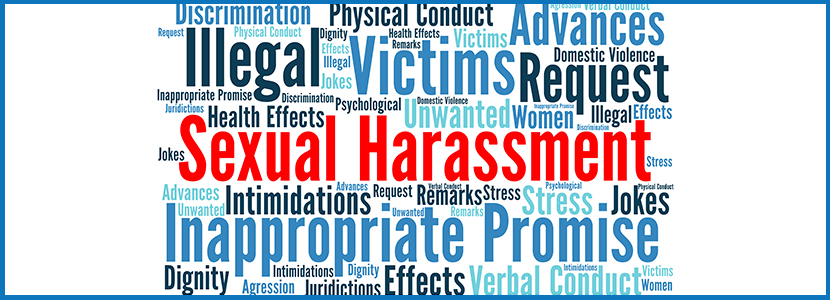
When Women Call a Man a Creep, a Sex Pest, or Sexual Predator Rather than a Flirt!
Ok, hands up… who has been on the receiving end of uncomfortable sexual stares and innuendos? I should be asking ‘who hasn’t been on the receiving end’ because almost every woman and some men certainly have! It might seem like a stereotype but sadly, it’s a reality that almost every woman and many men have faced. This isn’t about labelling all men – many are respectful and just want to have fun like women. However, sometimes there’s just one idiot that ruins your night out by taking it too far.
Sex pests, creeps, and other undesirables are unfortunately all too common in our society. These individuals often use their power, influence, or manipulation tactics to bother, or prey on others. It is important to recognise and call out this behaviour in order to create safe and respectful environments for everyone. I want to talk about the characteristics of these people, the impact of their actions, and the steps that we can take to combat their harmful activities.

What is a Sex Pest?
This is a simple question that doesn’t get asked enough! It’s often a person who engages in persistent and unwanted sexual advances towards another person. This is typically inappropriate, intimidating, and at times, even criminal. Sexual harassment and sexual assault are forms of predatory sexual abuse that could result in rape or even worse. Sex crimes are criminal acts are most often perpetrated by abusive males rather than females and often involve repeat offenses. Sexual pests and offenders often disregard personal boundaries and fail to heed the consent and autonomy of the person they are targeting.
Signs of a Sexual Predator – When You Get that Creepy Vibe – Red Flags and Warning Signs
Here’s a dozen red flags that can make a person seem rather creepy:
- Intense, lecherous, or overly prolonged eye contact e.g. looking you up and down or staring at your breasts or some part of your body.
- Invading personal space such as standing too close.
- Having a monotone or overly enthusiastic tone of voice.
- Making improper or suggestive comments, but probably more than just calling you darling or sweetie once or twice. In rural Australia especially, this is quite common still. However, giving excessive or over the top compliments could fall into this category.
- Excessive touching or physical contact.
- Staring or watching someone for an extended period of time.
- Making veiled threats or showing aggression.
- Inconsistencies in their conduct or conversation.
- Excessive attention seeking.
- Lack of regard for social norms or boundaries e.g. stalking someone on social media.
- Acting overly familiar or overly intimate with someone they do not know well e.g. love bombing someone by being overly attentive when they barely know that person.
- Gaslighting so that you feel unsure of your own memories, thoughts and feelings. This is a form of psychological manipulation that leads to confusion, loss of confidence and self-esteem. It encourages dependency, usually on the harasser who exerts dominance, which can be coercive. They will often purposefully twist the information in a situation, make accusations or mock the victim to destabilise the victim’s sense of reality emotionally and psychologically.
This is often a tactic used over a long period of time and occurs in various types of relationships including both business and personal. The victim may be made to feel unable to carry out tasks and become quite fearful as 100% loyalty is demanded of them without exception.
Is My Husband or Partner a Sexual Pest or Perpetrator?
It is improper for a partner or husband to behave in a way that makes you feel uncomfortable or violated. If you feel that your husband or partner is consistently behaving in a sexually inappropriate manner, such as making unwelcome advances, comments, or gestures, it may be a sign that they are a sexual pest. It’s time to have a talk about maintaining personal boundaries and your rights to your own body and your personal space.
It’s really important to communicate openly and honestly with your husband or partner about both of you developing healthy boundaries and expectations in the relationship. If they continue to behave in a disrespectful or harassing manner, it may be necessary to seek support from a therapist or counsellor or consider ending the relationship. Remember that you deserve to be treated with respect and dignity in all aspects of your relationship. And you have a right of reply to whatever excuses or justifications your husband/partner may come up with!
What to do if Someone is Being Creepy or is into Abuse?
It is important to trust your instincts and remove yourself from any possible danger if you are feeling creeped out by someone else’s unwanted attention. Flirting should be fun for both parties if it’s not, then it’s time to make yourself scarce.
Here are some steps you can take in uncomfortable situations where there’s something wrong:
- Trust your instincts: If you feel uncomfortable or unsafe around someone, it is important to listen to your intuition.
- Set boundaries: Clearly communicate to the person that their misconduct is making you uncomfortable and that you require them to stop.
- Seek help: If the person continues to be creepy or makes you feel threatened, seek help from a trusted friend, family member, or authority figure.
- Document the behaviour: Keep a record of any misconduct – actions or communications from the person, as this may be helpful if you need to report any allegations of sexual misconduct to the authorities. Do this especially if you’re at work. Remember the abuser Harvey Weinstein who was found guilty of sexual violence and his ‘casting couch’ of shame and humiliation.
- Report the incident: If the person’s activities are persistent or escalating, consider reporting it to appropriate authorities such as your employer, school, or law enforcement.
- Take steps to protect yourself: If you feel unsafe, take steps to protect yourself such as avoiding being alone with the person, changing your routine, or seeking a restraining order if necessary.
Remember, it is not your fault if someone is being creepy, menacing, or violent – you have the right to feel safe and comfortable in all situations. Trust your instincts and take steps to protect yourself.

Women can be Creepy Sexual Pests Too!
Improper sexual conduct isn’t limited to just men or the opposite sex …anyone can cross personal boundaries. So, if you sense a woman is getting a bit too close for comfort, trust your gut! It’s not just men needing to be told when they go too far. It’s not ok for anyone to sexually exploit or harm others.
Transitioning from Victim to Survivor
Transitioning from being a victim to a survivor is a profound and empowering journey that takes strength, courage, and support. It involves overcoming the feelings of powerlessness, fear, and shame that often accompany experiences of trauma and abuse, and reclaiming one’s sense of agency, self-worth, and resilience.
Here are some ways to help facilitate this transition:
1. Seek professional help: Therapy and counselling can provide a safe space for processing and healing from past traumas, as well as developing coping mechanisms and strategies for moving forward. Personally, I have found Eye Movement Desensitisation Response and EFT Tapping (Emotional Freedom Technique) useful for issues involving trauma and PTSD (Post Traumatic Stress Disorder).
2. Take care of yourself: Practicing self-care, such as getting enough rest, eating well, exercising, and engaging in activities that bring you joy and relaxation, can help build resilience and strength. You are worth it!
3. Connect with support systems: Whether it’s friends, family, support groups, or online communities, it’s important to surround yourself with people who believe and validate your experiences and can offer emotional support and encouragement.
4. Challenge negative beliefs: Healing from trauma often involves challenging and reframing negative beliefs about oneself that may have developed. Self-compassion and self-acceptance are key in this process.
5. Set boundaries: Learning to set and enforce healthy boundaries is crucial in transitioning from victimhood to survivorship. It’s okay to say no, to prioritise your own needs and well-being, and to remove yourself from toxic or triggering situations.
6. Focus on strengths and resilience: Recognise and celebrate your strengths, accomplishments, and resilience in overcoming adversity. Acknowledge the progress you’ve made and the positive changes you’ve implemented in your life.
Remember, transitioning from victim to survivor is a deeply personal and individualised process that takes time and self-compassion. It’s okay to seek support and guidance along the way, and to give yourself permission to heal and thrive. You are worthwhile!

The Importance of Listening to and Believing Survivors
Listening to and believing survivors is crucial for several reasons:
1. Validation and Support
It’s vital to listen to and believe survivors when they share their experiences. This support helps them to heal and counters feelings of isolation. Listening and believing will make the victims feel heard and current feelings of vulnerability can be dealt with. This is vitally important for their future healing.
2. Accountability
Believing survivors is crucial for holding offenders accountable. Disbelief can lead to a culture where harmful actions go unchecked, and society descends into a suffering decline.
3. Prevention
Taking survivors seriously can prevent future misconduct by sending a clear message that sexual misconduct is simply not acceptable.
4. Social Change and Strengthening Community
Listening to survivors puts a spotlight on, and challenges societal norms that allow violence and discrimination. This fosters a just and compassionate society by validating survivors’ voices and experiences. This support is key to holding offenders accountable, preventing future harm, and building a safer, more equitable society.
Understanding and compassion towards survivors can dismantle the stigma of trauma, encouraging them to seek support and healing. Ultimately, believing survivors empowers them to regain control over their lives so they can move forward again.
By prioritising the voices and experiences of survivors, we can work towards building a more inclusive and supportive community where everyone feels safe, heard, and respected.












